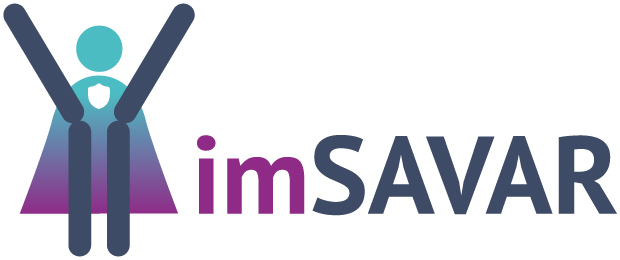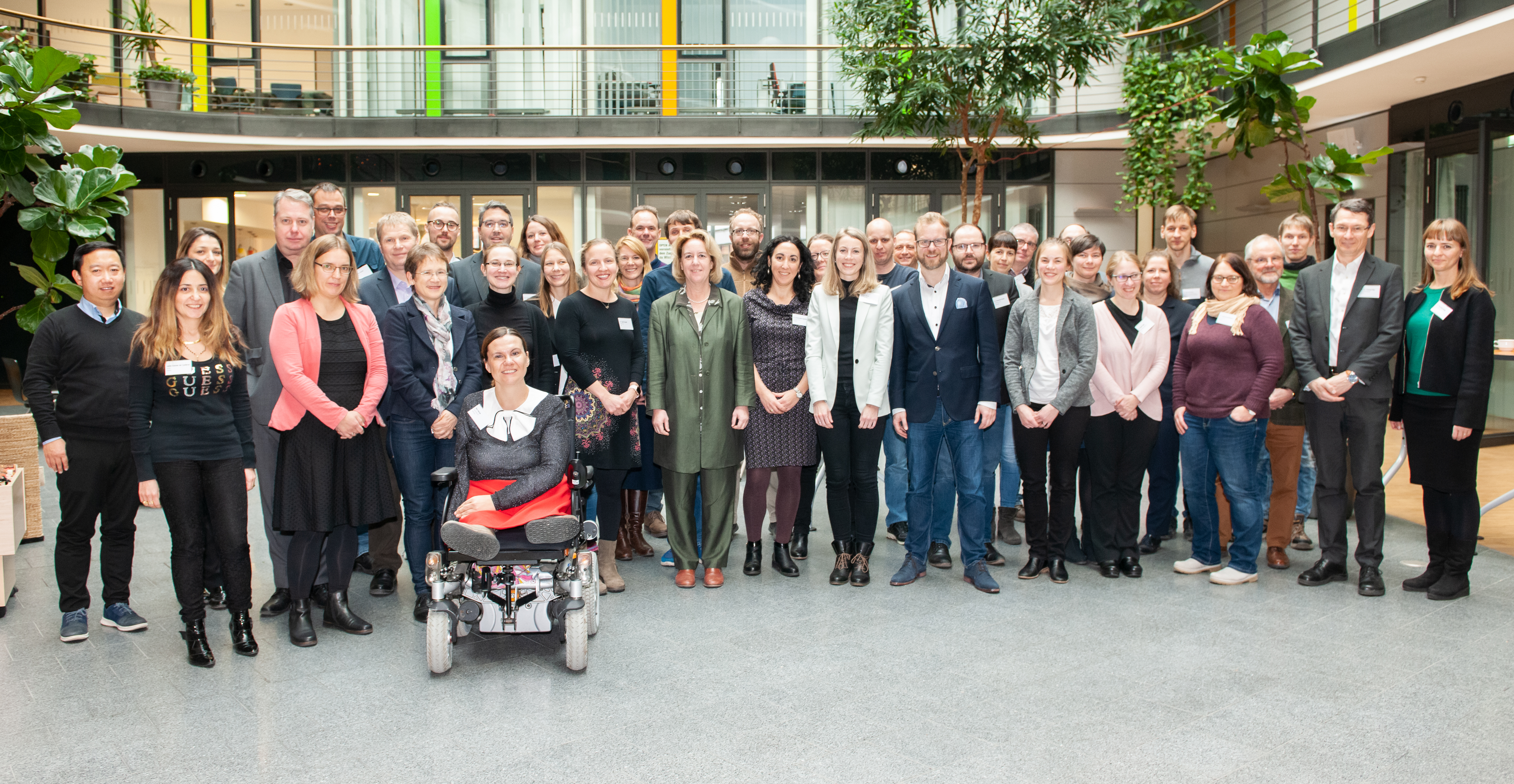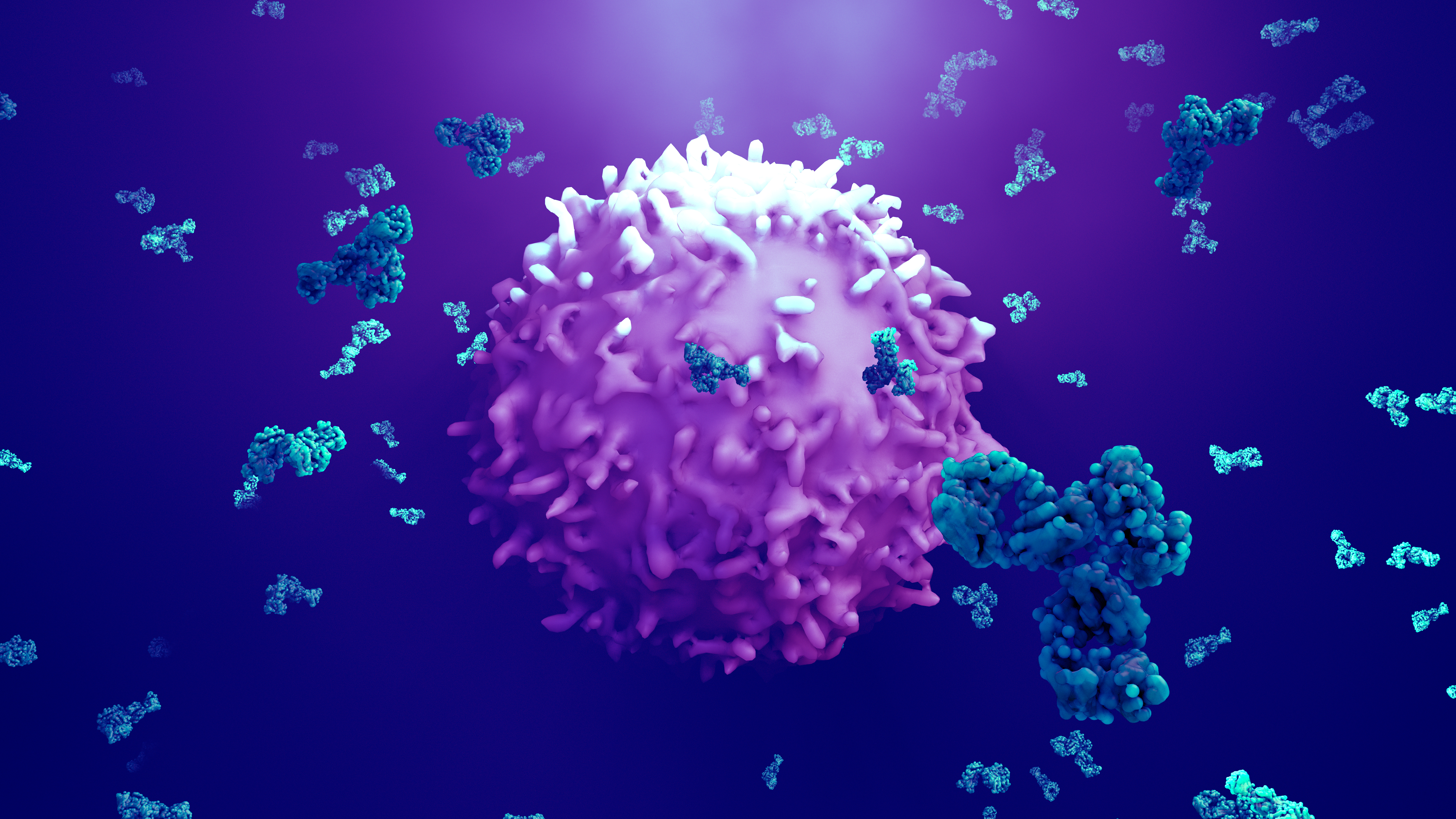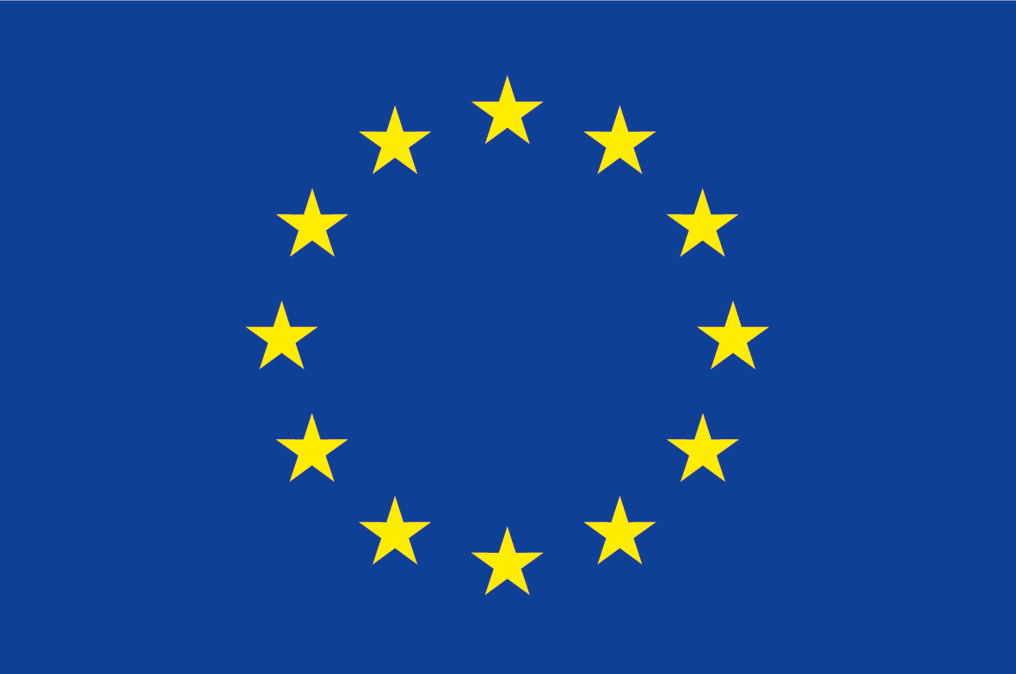In the imSAVAR project, an interdisciplinary EU consortium is developing innovative model systems for the evaluation of immunomodulating therapeutics. The EU project started its six‑year research project on December 1, 2019, and is funded within the public‑private partnership Innovative Medicines Initiative (IMI). Under the scientific leadership of Fraunhofer IZI, Fraunhofer IGB participates in project management and project coordination.
Challenges
A first essential step in the development of new active substances is the pre‑clinical evaluation of the efficacy and safety of the therapeutic agent. At present, preclinical evaluation is hardly possible in the development of immunomodulating therapeutics, for example in immune oncology and immune‑mediated diseases, because existing models do not adequately represent the complexity of the immune system and thus individual interactions of the human immune system in the diseased state cannot be reflected.
Objectives and project plan
The aim of the EU‑funded project Immune Safety Avatar (imSAVAR) is therefore the improvement of existing and the development of new model systems and their validation as a platform for the non‑clinical assessment of the safety and efficacy of immunomodulatory therapies. This should enable the identification of undesirable side effects of new therapies on the immune system and the development of new biomarkers for diagnosis and prognosis.
In the project, Fraunhofer IGB coordinates the development of novel immunocompetent in vitro models, which are being set up in cooperation with partners from the Universities of Jena, Tübingen and Twente, Fraunhofer IWS and the Leiden University Medical Center (LUMC). The focus here is on microphysiological systems, especially organ‑on‑chip platforms with which immune‑mediated effects and toxicities can be investigated directly in human tissue. The results can thus be directly transferred to humans and animal experiments can be reduced.
In addition to the organ‑on‑chip models, cell‑based reporter gene assays with immune receptors will be developed and established. These new in‑vitro assays are used to assess the efficacy, for example in immunomodulating drug screening, and the safety of new immunotherapies. In addition, corresponding reporter cells are also used in immunocompetent 3D skin models.
Impact
The imSAVAR platform will be evaluated through case studies for prioritized therapeutic modalities. This will involve all relevant stakeholders, including patients and regulators.

 Fraunhofer Institute for Interfacial Engineering and Biotechnology IGB
Fraunhofer Institute for Interfacial Engineering and Biotechnology IGB

